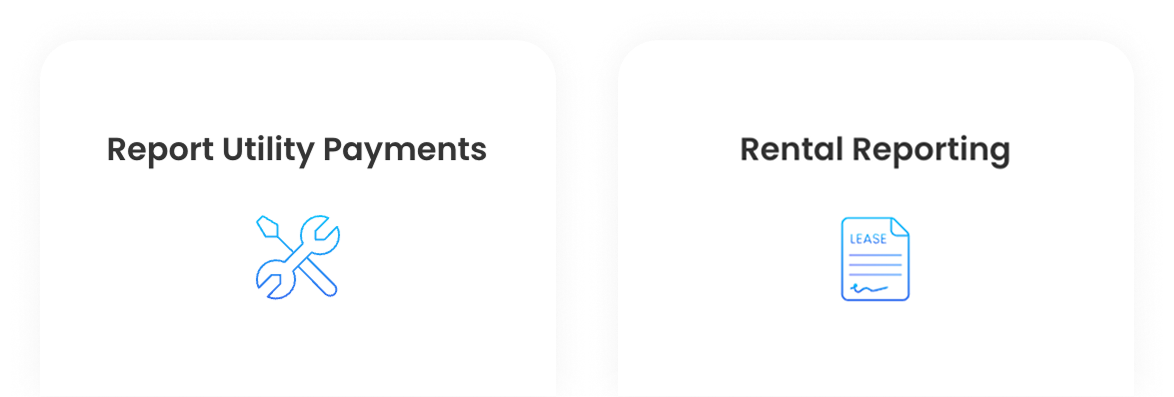






The Smart Software to Help You Build Credit
Personalized tools you need to get the credit scores you deserve
Credit Building Tools at Your Fingertips
Do you know more than 1 in 3 people have inaccuracies on their credit report? Disputing inaccuracies on your credit report can help you quickly build your credit score.
Source: Consumer Reports




Credit management that’s as easy as 1, 2, 3
We make it simple and streamlined for you to build credit. Here’s how it works.
1. Sign up
Sign up in a few clicks, and we analyze your credit information from all 3 major bureaus.




2. Use our smart software to manage your credit
Our AI flags your credit report for items negatively affecting your score, helps you generate dispute letters, and gives you education on how to build your score.
3. Enjoy the freedom your new credit gives you!
Buy your home, get that loan, save thousands of dollars on interest, and more.



Credit Reports & Scores
Monitor your credit for fraud and receive personalized actions you can take to build credit and improve finances.


Unlimited Disputing
We make it easy to dispute those negative items on your credit report. Our Dispute Hub generates custom dispute letters for each credit bureau and tracks your progress.


Track Your Progress
Easily keep track of your dispute letters and the responses you receive from the credit bureaus.

Credit Report Review
Review flagged items that can potentially be negatively affecting your credit score.

Rent & Utility Payment Reporting
Turn your everyday bills into powerful credit building tools. Boost your credit score by reporting your on-time rent and utility payments directly to the major bureaus a stronger financial future.




Plans & Pricing
A better credit score starts here. Choose a plan, ditch the doubt, and build the life your credit deserves.
FAQs
Find the answers you need to help conquer your credit goals.
- Sign up and get access to your credit reports and scores
- Review what is negatively affecting your score, including possible inaccuracies.
- Generate dispute letters through the platform and mail letters to credit bureaus.
- Set up rent and utility payment reporting to help build your credit score with bills you already pay.
- Track your credit scores, monitor your credit reports, and follow your credit building progress.
CreditBuilderIQ plans start at just $14.99 per month.
CreditBuilderIQ helps put you in control of resolving credit inaccuracies without breaking the bank. Along with tools to help you identify and dispute potential errors, it also helps you build your credit by reporting rent and utility payments you already make. CreditBuilderIQ is a convenient, affordable way to reach your credit goals.

Results may vary. CreditBuilderIQ℠ services are 100% U.S.-based. CreditBuilderIQ provides credit report information from Experian, Equifax and TransUnion. CreditBuilderIQ does not provide credit counseling services and does not promise to help you obtain a loan or improve your credit record, history, or score. CreditBuilderIQ is not responsible for the content, accuracy, or completeness of your credit reports. Not all lenders use Experian, Equifax, or Transunion credit files. The credit scores provided are based on the VantageScore® 3.0 model. Lenders use a variety of credit scores and are likely to use a credit score different than the VantageScore® 3.0 model to assess your creditworthiness.
Results may vary. Some members may not see an increased score or increased creditworthiness. Lenders use a variety of credit scores and may make decisions about your creditworthiness based on a credit score different from those impacted by positive rental and utility reporting.
© 2025 IDIQ® provider of CreditBuilderIQSM services. All Rights Reserved.
